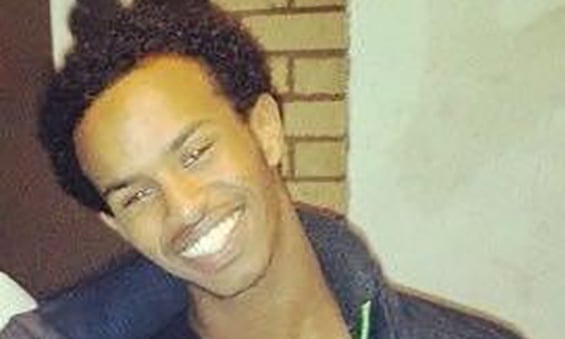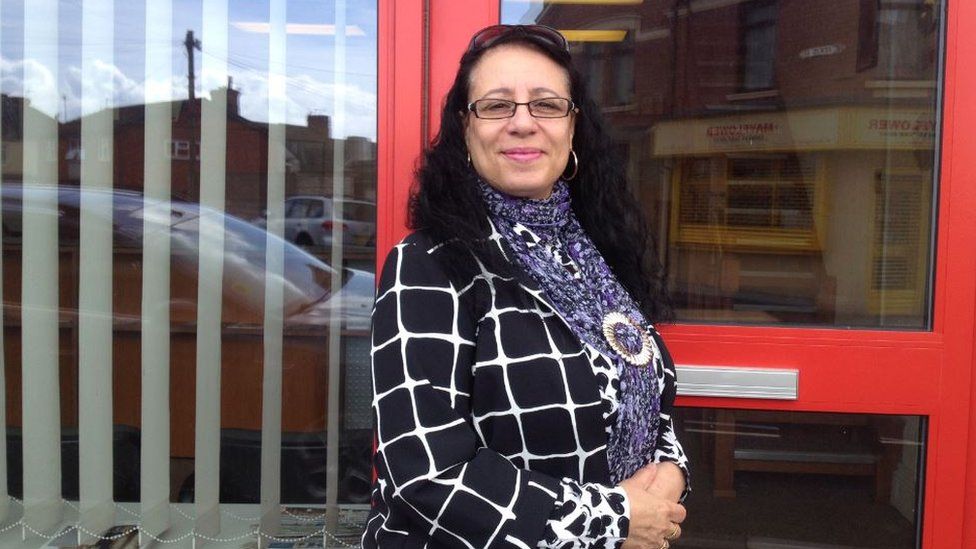

The cause of the young black man’s death has been pronounced as ‘unascertained’ following a post-mortem and as the Independent Office for Police Conduct (IOPC) pursues an investigation into a case with allegations of use of excessive use force and/or negligence of care by officers of South Wales police.As of last week, it emerged that six police officers have now been served ‘misconduct notices,’ meaning they’re currently being investigated ‘but may not have committed any wrongdoing,’ according to the IOPC. It’s unclear how long the investigation will take.
For Hassan’s family, who maintain that prior to his death he had demonstrably been a victim of police violence, it’s been a challenging time – particularly just now, according to their lawyer Hilary Brown of Virgo Consultancy. ‘They’re a Muslim family,’ Brown explained. ‘It’s the end of Ramadan.’

Hilary Brown (Pic: BBC)
To recap, Mohamud Hassan, a young man of Somali origin, was arrested by South Wales police one night in January following a disturbance call to a property where he lived in the Roath area of Cardiff. He was released the following morning without charge. Hedied at homelater the same evening.
Regarding the cause of his death, two different explanations emerged. According to South Wales police, his death was ‘sudden and unexplained’ with ‘no signs of misconduct or excessive force.’ But family and friends have maintained that there were visible and verbal signs suggesting that Hassan had been seriously assaulted. They have crowdfunded to pursue the matter legally.
According to an aunt, Zainab Hassan, there were signs of bruising and wounds on Hassan’s face and body, and blood on his clothing. A friend stated that Hassan had told him he’d been beaten up by the police. On the night of arrest, a neighbour had also reported hearing a serious commotion.
From the outset, the family, and campaigners seeing the case asracism-related, have asked for the release of video taken from the police custody unit and body-worn cameras. The footage is currently held by the IOPC who won’t make it public, arguing that it would compromise the investigation.
According to Brown, the non-release of footage is frustrating but understandable, but other matters less so.
Not only has there been no appointed family liaison officer, but the family were only until recently getting updates on developments from the IOPC via press releases, giving the impression of media management rather than a judicial exercise.
The IOPC has responded to the previous highlighting of this issue, and the family is now being updated every 28 days.
In February, it emerged that IOPC was investigating some 52 officers that Hassan was believed to have come into contact with, and that an officer was being investigated for ignoring complaints that he was in pain and ‘having a fit’ while being taken into custody.
Later it was revised and clarified that 46 officers are being questioned. The sixth officer served a misconduct notice was the custody sergeant, now being investigated over risk assessment undertaken on Hassan when in custody, while the other officer investigations relate to breaching standards regarding duty and responsibility, honesty and integrity, use of force and adequacy of welfare checks.
Brown and campaigners have been calling for the officers to be suspended while an investigation is underway. The IOPC have rejected the calls.
Meanwhile, in early March, an inquest heard that following a post-mortem, Hassan’s cause of death was pronounced ‘unascertained.’ It also emerged that contrary to a reported statement that Hassan had been Tasered, no evidence of this was found – facts in themselves exonerating the police on some counts, though skirting the issue of the levels of force that were used on him.
Also revealed at the time by the IOPC was a new aspect of background concerning the call out itself, which now concerns an altercation involving multiple people: five men who had gone to the address and fought with five other men at the address, with injuries visible on some at the time of arriving police officers.
Such facts in themselves would invite multiple new questions, all as yet unaddressed, which Brown clarifies that she isn’t in professional position to speculate on: such as who were these other nine ‘fighting’ people and were any arrested too? Have they given witness statements? And with so many people involved, how could this not have already emerged in previous reports or local news?
The fact that a fight had occurred prior to Hassan’s arrest may explain some of his alleged injuries while still leaving questions over whether he was assaulted further or denied medical attention by police.
Along with new twists in the investigation, grief for family also arrived through the death of Hassan’s new-born daughter Lamaya, who died on the day she was born on 22 March. But in spite of the grief and challenges, Brown notes that the family remain determined to learn what led to the death of Hassan, however long it takes.
Family of Mohamud Hassan fight for justice as police watchdog probe continues
It's now five months since the death of twenty-four-old Mohamud Hassan, a death which triggered the first series of protests in the UK this year despite a strict national lockdown. Raoul Walawalker, freelance journalist who also writes forImmigr